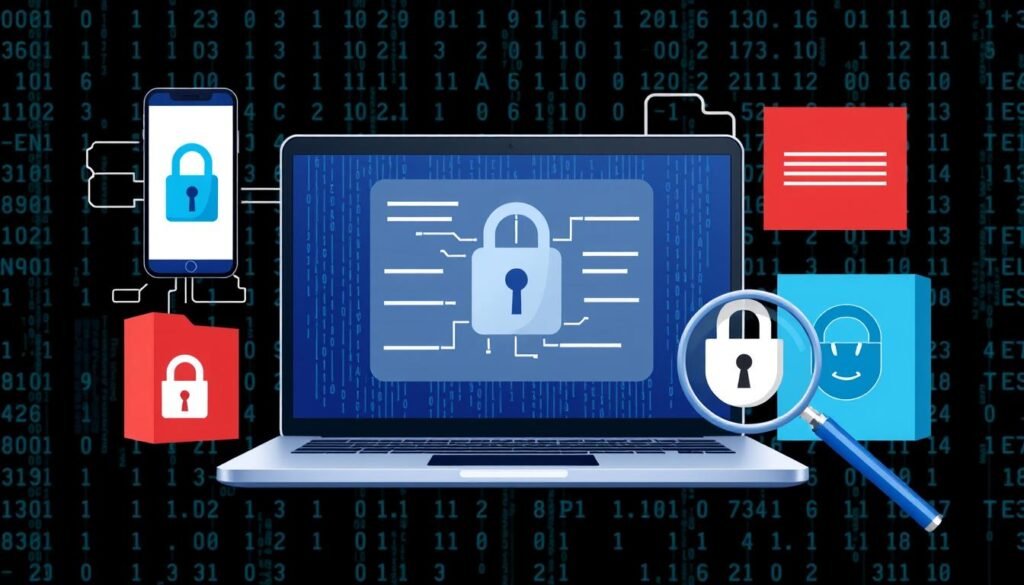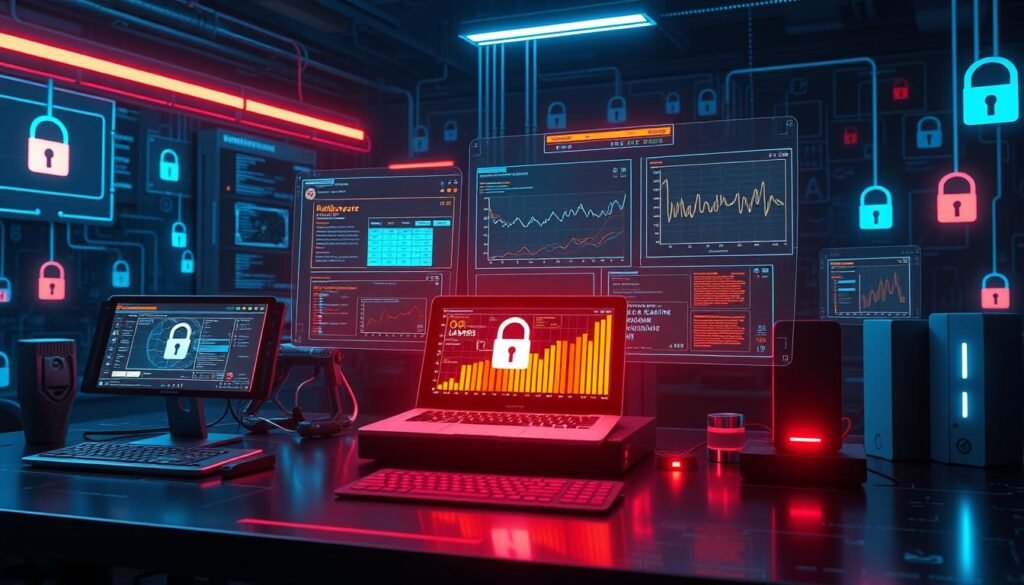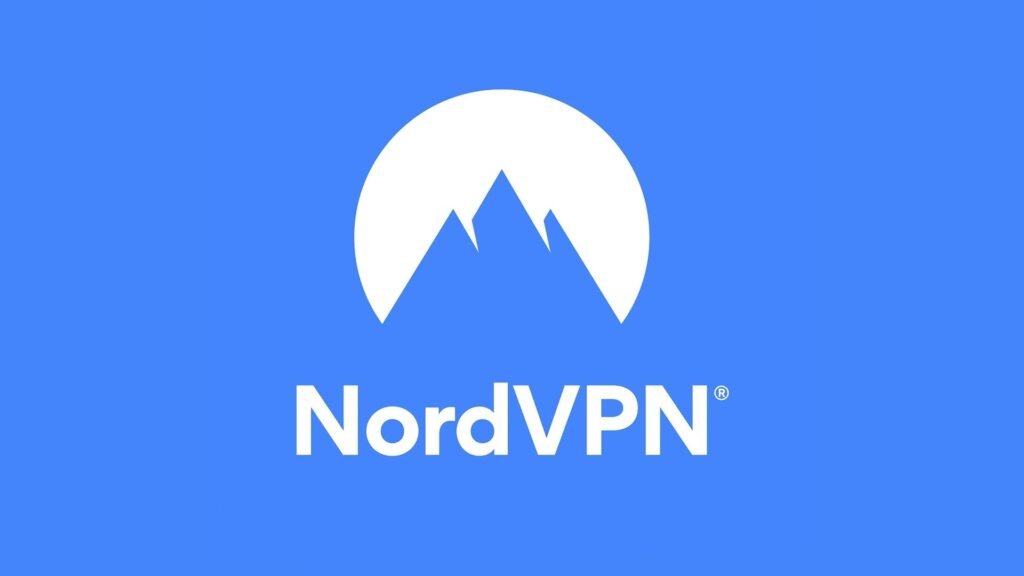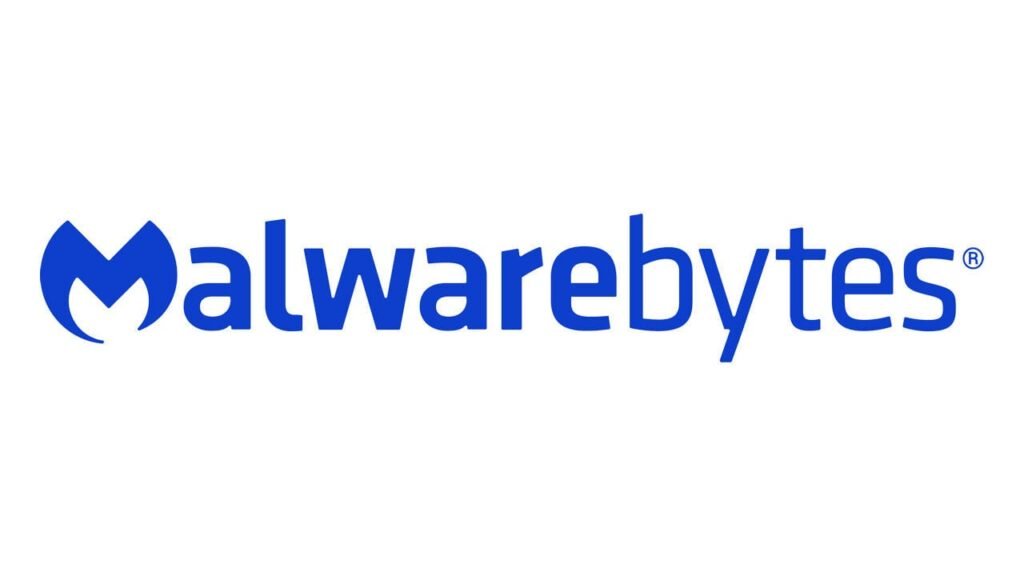Did you know the average cost of a data breach is now about $4.35 million worldwide1? With cyber threats getting smarter, it's crucial to have the right tools for online safety. These tools protect your data, keep your privacy safe, and watch for threats. With cybercrimes expected to cost $10.5 trillion by 20252, strong cybersecurity is more important than ever.
Tools like antivirus software, firewalls, and VPNs are key. They help keep your online world safe. Each tool is vital for a strong defense against cyber threats.
In this article, we'll look at the top cybersecurity tools. They help keep your online presence safe and prevent costly cyber incidents.
Key Takeaways
- • The average cost of a data breach is $4.35 million globally.
- • Cybercrimes are projected to cost $10.5 trillion annually by 2025.
- • Protecting your data is essential in today's evolving cyber threat landscape.
- • Robust cybersecurity tools include antivirus software, VPNs, and firewalls.
- • Investing in effective cybersecurity solutions can save organizations significant expenses.
Understanding the Need for Cybersecurity Tools
In today's digital world, cybersecurity is more important than ever. Cyber threats are getting smarter and more common. To stay safe online, companies need to use many cybersecurity tools.
Cybersecurity experts use tools like network monitoring, encryption, and antivirus software. These tools help find weak spots in systems and keep personal data safe3.
| Tool Category | Examples |
|---|---|
| Encryption | Tor, KeePass, VeraCrypt |
| Web Vulnerability | Burp Suite, Nikto, SQLMap |
| Penetration Testing | Metasploit, Kali Linux, Wireshark |
| Antivirus Software | Norton 360, Bitdefender, Kaspersky |
| Network Intrusion Detection | Snort, Security Onion |
Also, laws require companies to keep customer data safe. Using tools like firewalls and intrusion detection systems helps a lot4.
Common Types of Cyberattacks and Their Risks
Many types of cyberattacks are a big problem today. They can cost a lot of money. For instance, the FBI says cyberattacks caused $10.2 billion in losses in 20225.
The health care and government sectors are especially at risk. They handle a lot of personal data. Nonprofits and banks are also often targeted for their financial information5.
Cybersecurity threats are everywhere. Malware, like ransomware and keyloggers, is very common6. Phishing scams trick people into sharing personal info or downloading bad files6.
Ransomware can shut down a business by locking up important systems. The attackers demand money to unlock them, but there's no guarantee they'll do it5. Denial-of-service attacks overwhelm networks, causing big problems for businesses6.
Knowing about these online risks helps you stay safe. Keep your software up to date and use strong passwords. Cybersecurity tools are key to fighting these threats. By using strong security, you can protect your data and stay safe online.
Key Features of Effective Cybersecurity Tools
When looking at cybersecurity tools, it's important to know what they offer. They should watch your network in real-time and spot odd behavior fast. It's also key that they are easy to use, so you can manage your security without hassle.
Tools that can find threats on their own are a big plus. They help you act quickly to stop problems. Also, strong encryption keeps your data safe from prying eyes.
Being able to work with other systems makes tools more useful. And, following rules helps keep your digital space safe and avoids fines for security breaches.
Here's a table to help you see what makes a good cybersecurity tool:
| Cybersecurity Tool | Key Features |
|---|---|
| Endpoint Protection Tools | Safeguards devices like laptops and desktops; essential for mobile security as well. |
| SIEM Tools | Real-time log data collection and analysis; supports incident detection. |
| Vulnerability Assessment Tools | Scans networks and applications; provides detailed reports on vulnerabilities. |
| IAM Tools | Manages user identities; includes strong password policies and multi-factor authentication. |
| Incident Response Tools | Coordinates incident response; encompasses workflow management and evidence collection. |
| Cloud Security Tools | Ensures the security of data in cloud environments; manages cloud security posture. |
These features help organizations fight off cyber threats and stay safe7. With cyberattacks happening 1,636 times a week8, it's more important than ever to focus on these key points for a strong cybersecurity plan.
Must-Have Cybersecurity Tools for Online Protection
To fight off online threats, you need the right tools. The world of cyber threats keeps changing. So, it's key to have must-have cybersecurity tools for online safety. Let's dive into three key ones: antivirus software, firewalls, and VPN services.
Antivirus Software
Antivirus programs are your first defense against malware and ransomware. Norton, with over 50 million users, shows how important these tools are for PC safety9. Bitdefender and McAfee also offer strong features to keep your system safe9.
Firewalls
Firewalls block intruders between your network and them. They are key for any cybersecurity plan. Palo Alto Networks offers firewalls for all kinds of setups, from offices to cloud environments9. Firewalls are vital for stopping unauthorized access to your systems10.
VPNs
VPN services are crucial for keeping your online activities private and secure. They encrypt your data, keeping it safe from hackers. Using a VPN means you can browse safely and anonymously. This is even more important as data breaches keep rising10.

The Role of Password Managers in Cybersecurity
Password managers are key to keeping your passwords safe. With 56% of people using the same password for many accounts, they help fight cyber threats. They store all your passwords in a secure, encrypted vault. This way, one strong password unlocks all your accounts11.
They make it easy to have a different password for each site. They also stop hackers by making strong, unique passwords. This keeps you away from common words and phrases12.
How Password Managers Work
Password managers create and store unique passwords for each account. This lowers the risk of hackers getting your info. They encrypt your data, keeping it safe during online exchanges12.
They also let you log in automatically, while keeping your data safe12. Most offer syncing across devices, so your passwords stay up to date11. Using long passphrases adds extra security12.
Top Password Management Tools
Many top password tools offer great features for keeping your passwords safe. Here's a quick look at some top picks:
| Tool Name | Key Features | Storage Type | Multi-Factor Authentication |
|---|---|---|---|
| 1Password | Strong password generation, secure storage | Cloud | Yes |
| BitWard | Cross-platform support, free option | Cloud | Yes |
| KeePass | Local storage, total control | Local | No |
| LastPass | Easy access, auto-fill features | Cloud | Yes |
| Apple's iCloud Keychain | Password storage across Apple devices | Cloud | Yes |
These tools manage passwords and store other sensitive info like credit card details. It's important to pick trusted password managers for safety11. Always keep your manager updated for the best security11.
Multi-Factor Authentication: An Essential Layer of Security
Multi-factor authentication (MFA) is key for keeping your online accounts safe. It asks for at least two things to get in, making it hard for hackers to get in. With MFA, your account is 99.9% safer from cyber threats.
MFA uses different security types like passwords, phones, and even your location. This makes it stronger than just two-factor authentication13.
In today's digital world, MFA is not just a good idea; it's a must. Companies use MFA to build trust and follow rules. It also saves time and money by cutting down on support needs and fraud risks.
Studies show that MFA is especially important for sensitive data like banking and healthcare. It fights off phishing and social engineering attacks14.
When picking MFA tools, you have many choices. Small businesses might use Microsoft or Google Authenticator. But bigger companies might prefer Duo Security or Okta Verify. The future of MFA is moving towards passwordless and adaptive systems for even better security15.
In our digital age, using multi-factor authentication is crucial. It keeps your important info safe and your digital world secure.

Data Encryption: Protecting Your Sensitive Information
Data encryption is key to keeping your information safe. It's not just a tech need but a must for security. With more data breaches, encryption is more important than ever. Almost every website uses it to keep your online chats private16.
Think about using encryption tools for your needs. They can be for personal or business use.
The Importance of Encryption
Encryption is crucial for keeping sensitive data safe. It's needed for financial info, health records, and business secrets. Whole Disk Encryption is a top choice for portable devices to block unauthorized access17.
Companies must encrypt data to protect it and build trust with customers16.
Popular Encryption Tools
Many encryption tools are out there to help keep your data safe. Here's a list of some top ones:
| Encryption Tool | Platform | Type of Encryption |
|---|---|---|
| BitLocker | Windows | Full-Disk Encryption |
| FileVault | macOS | Full-Disk Encryption |
| VeraCrypt | Cross-Platform | Full-Disk and File Encryption |
| TLS | Web Applications | Data in Transit Encryption |
| PGP | Email Clients | Email Encryption |
These tools are vital for keeping your data and communications safe. For example, using a VPN is a top way to encrypt your internet traffic18. Apps like WhatsApp and Signal also use encryption to protect your chats18.
Choosing the Right Malware Scanners
Choosing the right malware scanners is key to strong cybersecurity. These tools are crucial for malware detection and removing threats. In today's complex cyber world, it's vital to pick scanners that use many detection methods for full protection.
Functions of Malware Scanners
Malware scanners protect your digital assets in several ways. They use different techniques, like:
- • Signature-based detection, which spots known malware by comparing files against a database of known threats.
- • Behavior-based detection, watching for odd activities and system anomalies.
- • Sandboxing, a method that runs files in a safe space to see how they behave before letting them on your system.
The cybersecurity world in 2024 is getting more complex. This means we need tools with advanced tech like deep learning and predictive intelligence. Without strong malware scanners, companies face risks like ransomware and advanced persistent threats19. Sharing threat intelligence is key for quick responses to new threats and malware19.
When looking for the right malware scanners, check out resources that list important features and suggestions. Tools that find threats and offer ways to fix them help keep your systems safe and ready for future attacks.

Knowing what different malware scanners can do helps you make smart choices for your cybersecurity plan. With cyber threats always changing, having the right tools is crucial for protecting your networks and data20.
Identity Theft Protection Tools for Personal Security
Identity theft is a big problem today. Using tools to protect your identity is key. Services like Aura offer protection for your credit and online safety21. They also watch for fraud and protect your devices and networks21.
Aura's auto title monitoring is a special feature. It helps find fraud in collateral loans21.
When picking personal security tools, look for good credit monitoring. LifeLock's Ultimate Plus plan does a lot, including fighting synthetic identity theft22. It alerts you right away if someone tries to open a new account in your name22.
The cost of these tools matters too. Aura starts at $12 a month and has family plans21. LifeLock's plans start at $19.99 a month but cost more for premium services23.
Here's a comparison of some popular identity theft protection tools:
| Service | Price (Per Month) | Key Features |
|---|---|---|
| Aura | $12 | Credit & fraud monitoring, device protection, auto title monitoring |
| LifeLock Ultimate Plus | $19.99 | Fictitious identity monitoring, three-bureau credit monitoring |
| Norton 360 with LifeLock | $99.99 (Annual) | Comprehensive identity monitoring, antivirus software, VPN |
Choosing the right tools is important for protecting your identity. Services like these give you peace of mind. They help keep your information safe from new threats2122.
Conclusion
Think about your digital safety and how important it is. Using different cybersecurity tools every day is key to keeping your online life safe. With threats like malware and phishing getting worse, you need strong tools like antivirus software, firewalls, and password managers24.
By tackling these threats, you not only keep your digital world safe. You also build trust with others in your personal and work life24.
Each tool plays a big role in your safety plan. Firewalls, for example, control network traffic well. They use methods like packet filtering and stateful inspection25.
Tools like Burp Suite for web scans and Wireshark for network checks help a lot. They give you important info and help lower risks25.
Putting cybersecurity first is crucial for better online safety. With the right tools, you can move through the digital world with confidence. You'll know you've done everything to keep your info safe24.




